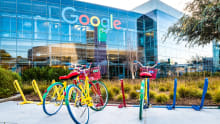How the year has been for the LGBTQ community

September 6, 2018 will go down the annals of Indian history as a momentous year. After decades of struggle, the Supreme Court finally delivered a ruling scrapping Section 377 that criminalised homosexuality. It was powered by the efforts of activists, NGOS and lawyers over several decades. For the Indian LGBTQ (lesbian, gay, bisexual, transgender, transsexual, queer) community, this day reinstated their faith in the judiciary and its power to protect and empower.
The verdict had some very moving statements. The Chief Justice of India Dipak Misra best represented the coming change when he said, “Section 377 is irrational, indefensible and manifestly arbitrary...Discrimination on the basis of sexual orientation is [a] violation of freedom of speech and expression.
The struggle is on
But the struggle for the LGBTQ community is far from over. While it has brought the hope of acceptance and dignified living for the queer community, it is time to take stock of all that is being done and what remains to be accomplished.
Right from integrating the LGBTQ community in the workplace to ensuring that they are not discriminated, in terms of housing, jobs, or use of amenities, there needs to be proactive action to ensure that major changes happen and we don’t just do lip service to diversity.
Corporate India and the HR community has a major role to play over the coming days. After all, the LGBTQ community needs to feel empowered and accepted for who they are, and that can only happen once we offer them employment in a non-discriminatory environment and value the markers of their identity. So, right from vocational training to the recruitment process and giving loans to incentivise business, a lot needs to be done for the LGBTQ community.
We need to keep in mind that marginalization and discrimination extract a heavy cost on economic growth as it shrinks the existing pool of talent, restricts markets, causes brain drain and slows down economic growth. Not being inclusive can also affect a company’s reputation. A 2016 World Bank report placed India’s loss in GDP due to homophobia and transphobia up to $32 billion, or 1.7% of our GDP (Radcliffe, 2016).
What we certainly don’t need from corporate Indian is tokenism or rainbow washing. Post the verdict, so many companies and brands welcomed the decision, but it would be interesting to investigate how many of them will go on to implement LGBT-inclusive policies for their employees, be it gender inclusive washrooms or insurance benefits for same-sex partners.
Why be LGBT inclusive?
If a company wants to be LGBTQ inclusive, there is a good business case for it. According to the LGBT Foundation, the LGBTQ community is the fourth largest economy in terms of GDP and boasts of 4.6 trillion dollars worth of global spending power. Inclusive workplaces also foster innovation and talent.
As for Indian society, the changing times and reforms in the corporate sector will go a long way in giving the LGBTQ community more visibility and acceptance. With the verdict giving the community basic freedom, it will hopefully be the start of a new chapter in LGBTQ inclusivity in which corporate India can play a good role.










